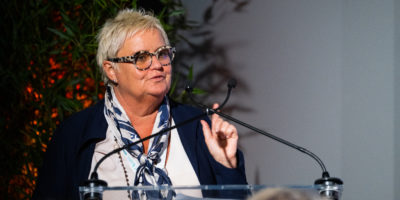First Patients Enrolled in SOS-COVID Study
Not all patients with COVID-19 end up in the hospital or intensive care unit. A considerable portion of patients have milder symptoms and are monitored and treated in primary care. Therefore, the Rapid European COVID-19 Emergency Research response (RECOVER) also focuses on primary care studies.
This primary care research is crucial to generate evidence about milder and/or undiagnosed SARS-CoV-2 infection, as well as to track the progress of the disease. It will contribute to informing the planning, policy, communication and clinical management of the COVID-19 pandemic.
The RECOVER primary care study, called SOS-COVID (SARS-CoV-2 Observational Study of community-acquired acute respiratory tract infection during a time of widespread suspected COVID-19 in European primary care), is a prospective, observational study of acute respiratory tract infection in primary care settings across Europe. It aims to provide an accurate estimation of the prevalence, the clinical presentation and illness spectrum, and outcomes of COVID-19 in primary care. The study aims to determine what proportion of patients with respiratory tract infection and/or COVID-19 suspicion in primary care are infected with SARS-CoV-2. It will also define the risk factors for complications of the disease.
The study started in March 2020 and enrolled their first patients in the Netherlands on April 14th. A total of 26 patients were enrolled in the first week of recruitment. Belgium started enrolling patients in the second week, and Georgia joined in in the third week. The study team is now working on starting up the study in six other (European) countries: Germany, Hungary, Ireland, Moldavia, Poland, and Spain.
Read the official RECOVER press release about the first patients included here

Alike van der Velden, Assistant Professor of Primary Care and project leader of the RECOVER Primary Care studies, is delighted by the motivation and spirit of the participating national teams, general practitioners and patients. “In this very hectic situation, especially in health care, it is fantastic to notice the dedication of physicians to participate in research. Partners, friends and children are involved to assist with study organization and data entry. It is inspiring to be able to contribute in such a way.”
About RECOVER
RECOVER (Rapid European COVID-19 Emergency Research response) is funded by the European Union to respond to the SARS-CoV-2 pandemic and originates from PREPARE (Platform for European Preparedness Against (Re-) emerging Epidemics). It is positioned as PREPARE’s research response plan addressing the most urgent questions for patient and public health and will run for approximately two years (2020-2022). The results of all RECOVER activities (clinical studies in primary and hospital care; epidemiological studies and modelling; and clinical biological studies) will immediately inform the European response to COVID-19. It will also further strengthen Europe’s clinical research preparedness and inform future research response efforts to further strengthen Europe’s preparedness to future emerging infectious disease outbreaks.
Combatting the COVID-19 Pandemic
COMBACTE’s extensive, highly capable clinical and laboratory network is ensuring rapid participation of experienced hospital sites in COVID-19-focused clinical trials. Together with 10 international partners, COMBACTE is part of the RECOVER consortium, putting forward its network to support the clinical trials involved.
Find out what other COVID-19 related activities COMBACTE is involved in. Read more
About the COVID-19 Pandemic
In December 2019 the first patients with pneumonia of unknown aetiology in Wuhan, China were being reported to the WHO China Office. By the 24th of January the first cases of COVID-19 were recorded in Europe. Within less than two months the WHO declared COVID-19 a pandemic.
Related updates

Webinar Combatting Antimicrobial Resistance: The Legacy of the IMI COMBACTE Projects
On May 31st, the Innovative Health Initiative will host an Impact Webinar spotlighting the significant outcomes of the COMBACTE projects in combating ...

“We Take Bigger Steps Together”
